Tags
Related Posts
Share This
Paperless Film
Earlier in the Spring 2017 semester, Alejandra Castro and Lia Gotz gathered students at the Santa Fe University of Art and Design for a photo shoot: The students all held up signs with the hashtag #immigratedfrom, and each student wrote in the country where they were born. Dominican Republic, Canada, Mexico, India and Vietnam were among the many countries listed. “People have a certain image of what an immigrant looks like,” Gotz says. “They thinks all immigrants are [from Mexico], but this country is built on immigration.”
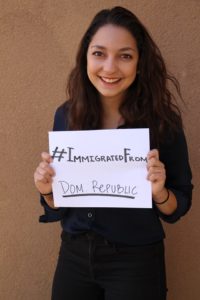
Lia Gotz participates in the hashtag movement #immigratedfrom
The use of #immigratedfrom was to bring attention to a much larger project: a short film titled Paperless. Castro, a senior film major and the writer and director of the film, has been juggling the idea since her first year at SFUAD. “I didn’t feel ready to write it until now,” she says. Castro grew up in Arizona and says much of her inspiration came from her family’s experience with the S B. 1070 law, which allowed police to randomly demand citizenship papers and perpetuated racial profiling in Arizona.
The 18-minute film is still in pre-production and tells the story of Nina Flores, a woman who comes to America to pursue her dream as an art teacher and to provide a better life for her daughter, Sophia. Gotz, a senior film production major and the film’s producer, says, “We want to redefine what it means to be an immigrant. We want to show the perspective of those who immigrate to find an opportunity for themselves.” The film explores the unique hardships of living in a country illegally and the negative ways in which such limitations impact Nina’s relationship with her daughter.

Alejandra Castro participates in the hashtag movement #immigratedfrom
Paperless currently has a mock trailer viewable on the website that displays the tone of the film, but the dedicated production team, including SFUAD cinematographer, Nathaniel Regier, hopes to begin filming soon. All of the footage will be captured locally in Santa Fe and with the help of several privately owned businesses, including Aspen Dry Cleaners and Valle Del Pan Panaderia.
Despite the passionate crew and locals donating their time and space to the film’s cause, Paperless is struggling to move forward due to budget limitations. The film still needs to raise $10,000 to provide food, transportation and to compensate actors. Gotz and Castro are currently accepting donations through their website and are grateful to any amount that can be contributed to the project. Each $100 donated will be given a raffle ticket for a chance to win a beautiful painting valued at $5,000 by Arizona artist Gennaro Garcia, a long-time friend of Castro’s family. “By donating, you’re making a difference,” Gotz says. “There are a lot of families that are being ripped apart right now.” She talks about parents being taken back to Mexico and their children being left behind. “Those children don’t know any other culture,” she says. “They never even had a choice about coming here. We are trying to create awareness and change perspectives on immigration.”
In the current political climate, Paperless is a valuable story that needs to be told, but Paperless was not written in response to current xenophobia in America, and both Gotz and Castro want to keep politics out the film to leave room to focus on the depicted family.
Gotz and Castro intend to show Paperless at international films festivals and to one day recreate it into a feature length movie. “If you donate to the film, you can be part of a bigger movement,” Gotz says.
Visit the website for more information on the film Paperless.






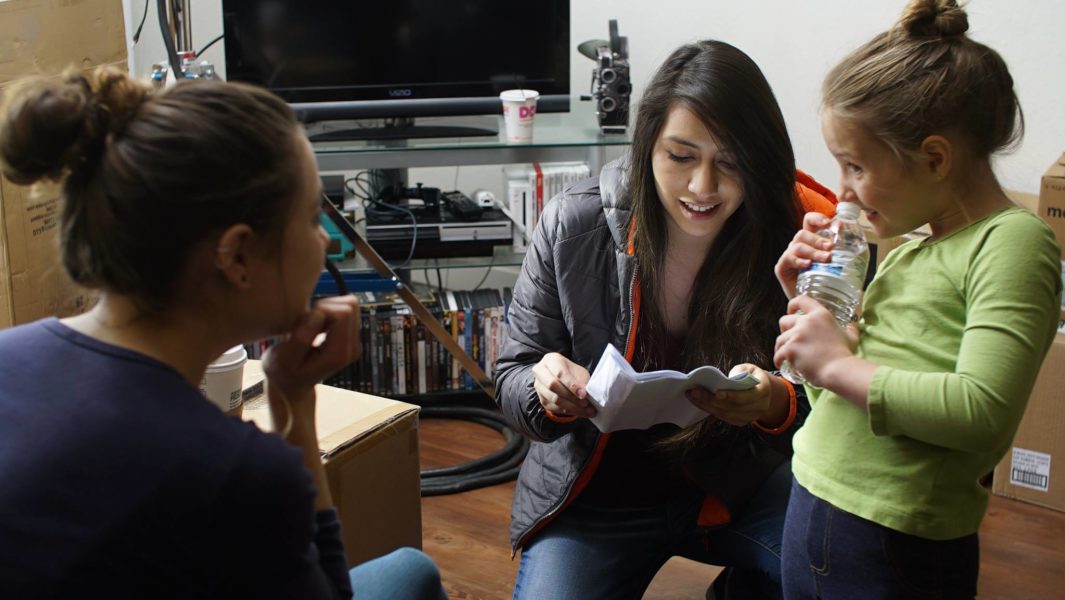
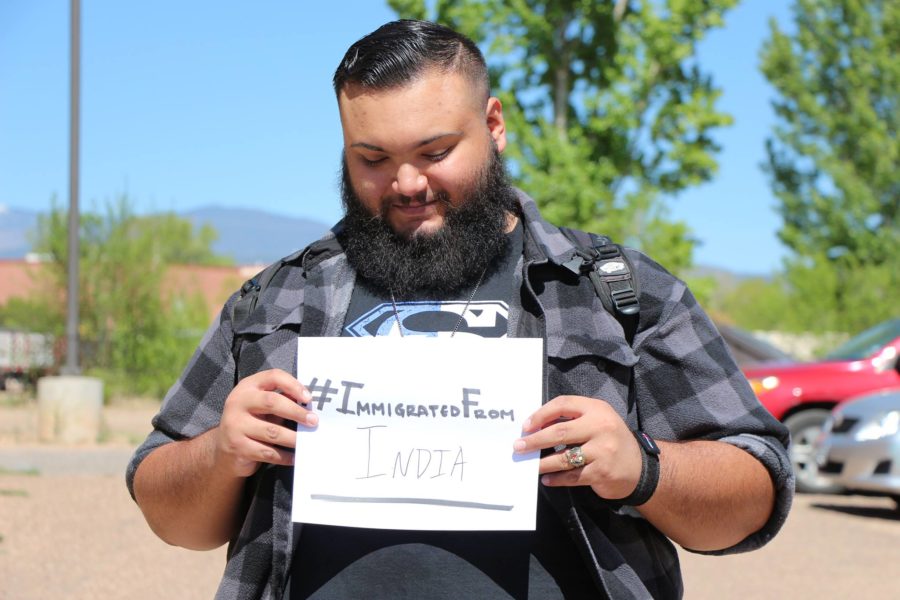

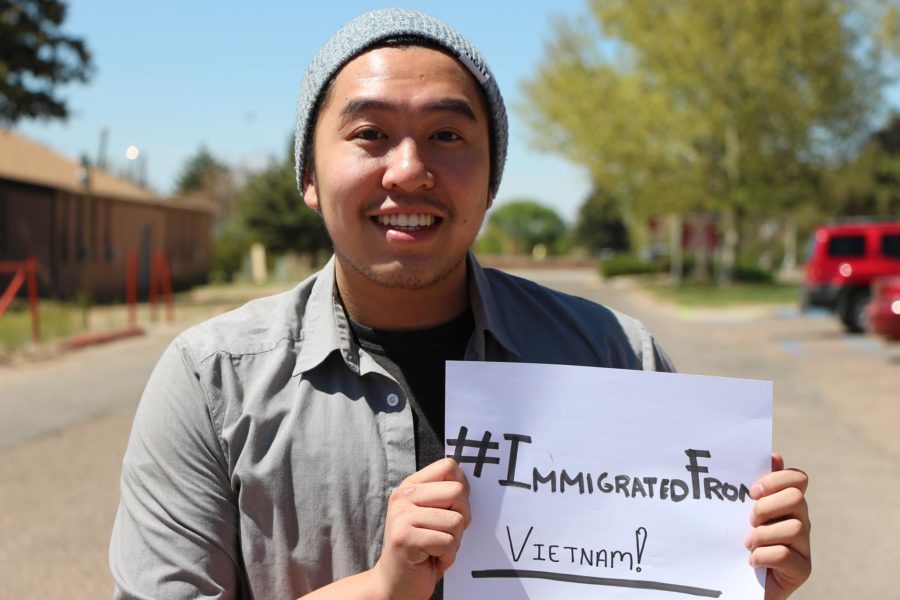
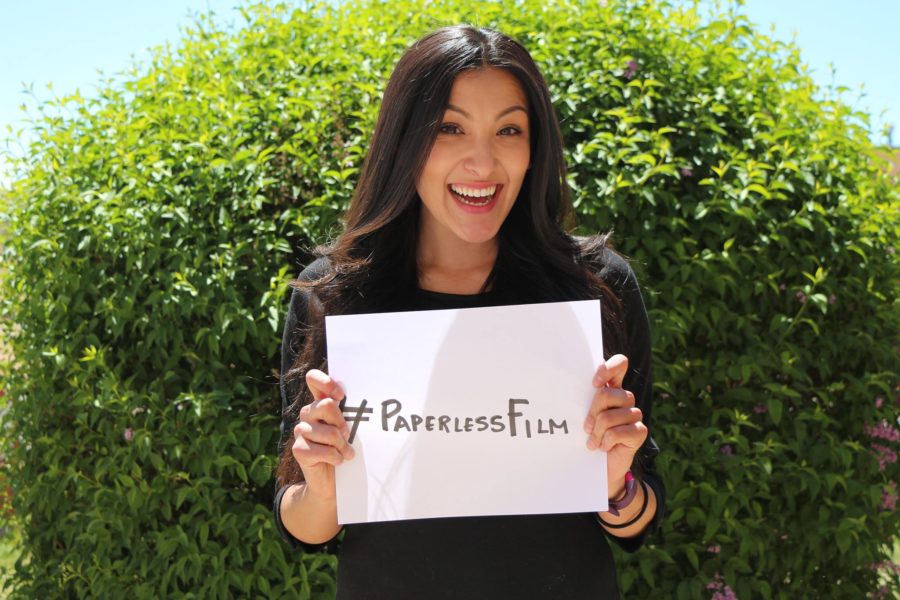
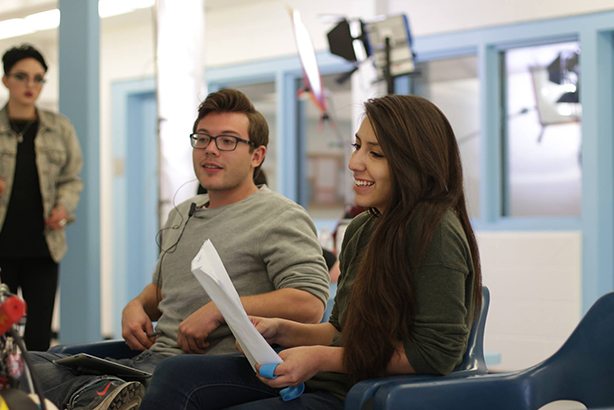
 Jackalope Magazine is the student magazine of Santa Fe University of Art and Design. Building on the interdisciplinary nature of our education, we aim to showcase the talent of our university and character of our city.
Jackalope Magazine is the student magazine of Santa Fe University of Art and Design. Building on the interdisciplinary nature of our education, we aim to showcase the talent of our university and character of our city.
Recent Comments